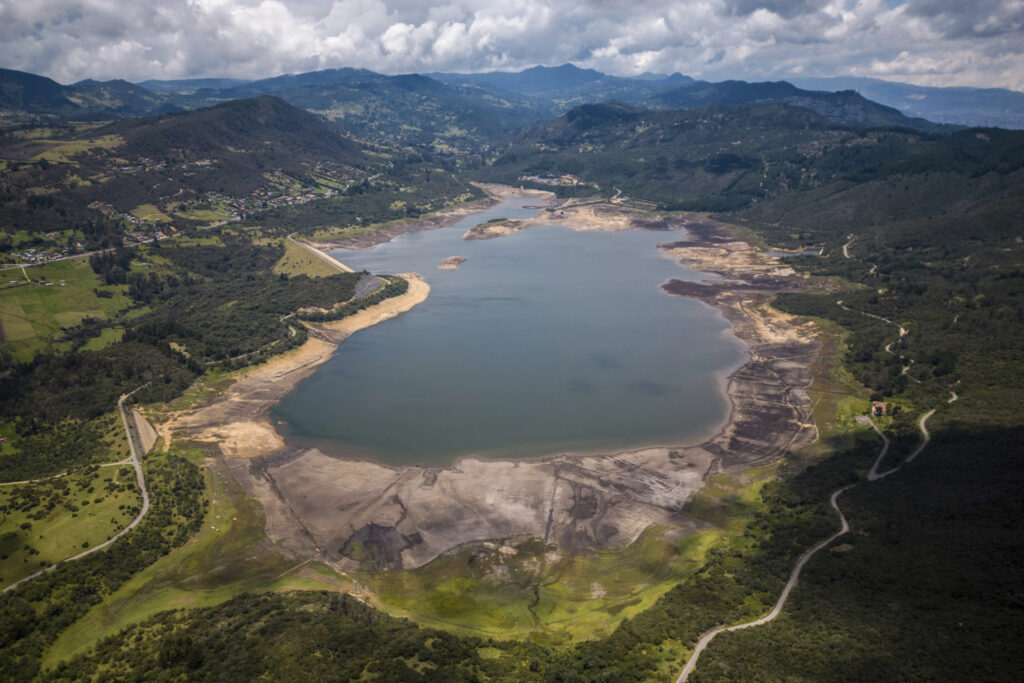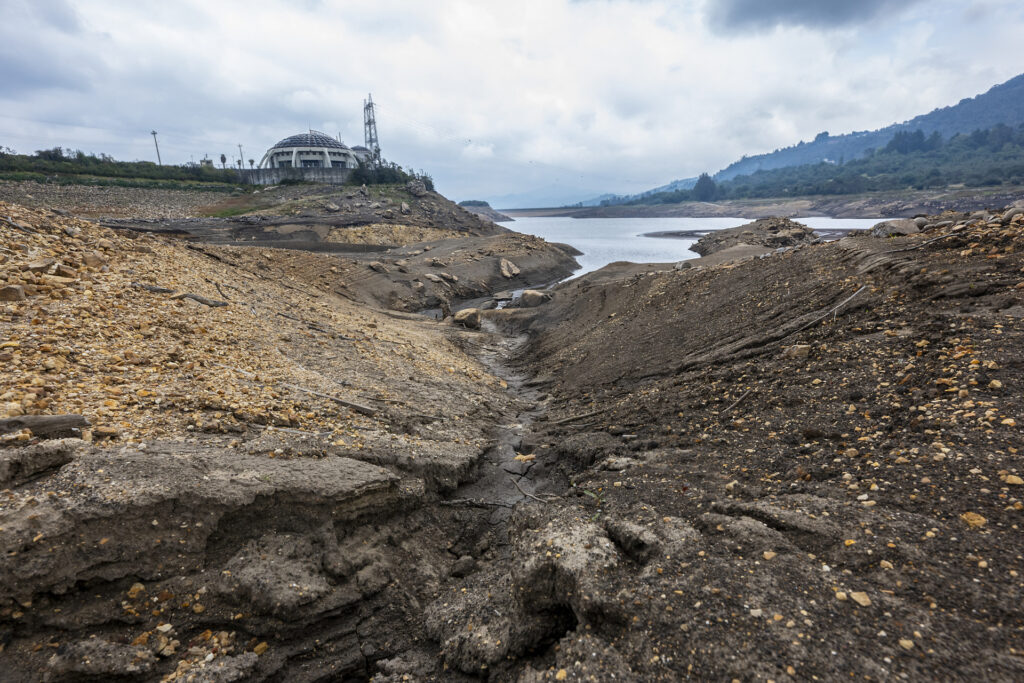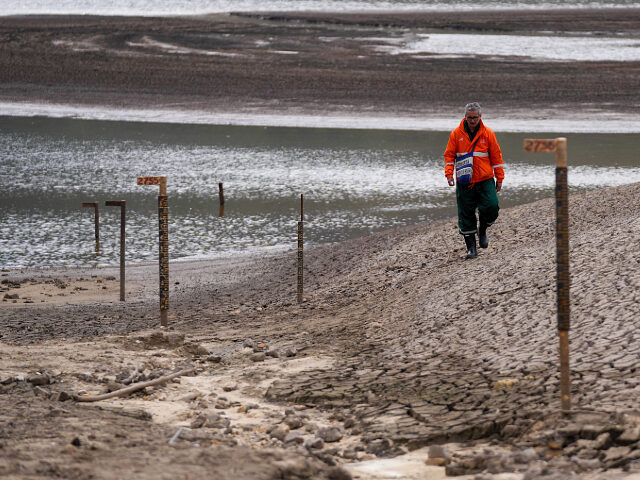Colombia’s capital city, Bogotá, will begin rolling water rationing on Thursday for at least a year, Mayor Carlos Fernando Galán announced Monday.
Galán asserted that the restrictions in running water distribution seek to alleviate a drought caused by El Niño weather pattern, which has dropped water levels of the reservoirs that supply the Colombian capital to “alert” levels.
“This situation has to do, obviously, with the El Niño phenomenon and with a month of March that was aggravated because it was expected to have rains in the last week and that the trend in the reservoirs was going to change,” Galán said. “But that did not happen; we had one of the driest Marches historically, and that aggravated the situation and led us to the situation we are seeing.”
Galán stated that a low reservoir level was projected for 2024, but the results have been worse than expected, warning that “2025 is projected to be more critical than 2024.”

The San Rafael reservoir, a source of drinking water for Bogotá, Colombia, is at a low level due to the El Niño weather phenomenon on April 5, 2024. (AP Photo/Ivan Valencia)
The rolling water rationing in Bogotá will begin on Thursday, April 11, 2024, at 8:00 a.m. Under the plan, Bogotá has been divided into nine zones, each of which will be left without water for 24 hours, one at a time, restarting every ten days.
Galán said that authorities will reevaluate the rationing schedule every two weeks, stressing that the goal is to achieve “a behavioral change” that allows water service to continue.
“We have the goal of achieving a change in the behavior of the people of Bogotá that will allow us to guarantee the provision of water services in the short and medium term but also in the coming year,” Galán said.
The rationing announcement, instead of resulting in a decrease in water consumption in Bogotá, reportedly led to an immediate increase in consumption, going from an average of 17 cubic meters per second to 18.3 cubic meters per second on Monday.
Galán, in an interview on Tuesday with Noticias Caracol, warned that sanctions would be imposed on those who “waste water” during the rationing.
“I asked the General Secretariat and the Aqueduct to evaluate sanction measures when there is water wastage,” Galán said. “Whoever eventually uses more water than planned, measures will be sought to sanction them.”
During the interview, Galán provided several “tips” on how to save water, suggesting Bogotá’s citizens not take a bath if they are going to stay at home.
“If you are not going to leave your house on Sunday, take advantage of it and do not take a bath,” Galán said. “Stay at home during the weekend, and, on Monday, you go and take a bath.”
“That message would help us a lot if we could get many people to drastically reduce their bathing time,” he continued. “When you have children, you know that it is not so serious, you say, ‘Oh, daddy,’ let’s just do what is necessary.”
Galán claimed that he has been reducing the time it takes him to shower. “I do it in three minutes,” he said.

View of the San Rafael Reservoir in La Calera, Colombia, taken on March 12, 2024. (LUIS ACOSTA/AFP via Getty Images)
Another “tip” Galán suggested was that couples could bathe together.
“Take a bath as a couple. It is a pedagogical exercise to save water, not other things,” he said. “That kind of thing is going to help us a lot. These behavioral changes are key.”
The mayor stated that the rationing schedule will be evaluated every two weeks to see if it needs to be maintained, reduced, or increased.
“Everything will depend on the rains, which we hope will finally start, and it will depend on the reduction of consumption,” he said. “If there is no change in behavior [of the citizens], we will have to dedicate ourselves to the restrictions and eventually extend them, both in time and to tighten them.”
Natasha Avendaño, the manager of the Aqueduct of Bogotá water company, provided the city’s inhabitants with a referential calculation on how to “properly” administer stored water supplies during the rationing, using a family of three as a reference point, which, according to the water company manager, should use “two 12-liter buckets, two medium-sized pots, and a pitcher” to satisfy its basic needs.
“That is 34 liters of water, which should be enough so that, without cleaning the home, only attending to the basic needs of food, personal hygiene, and, obviously, sanitation, we can spend the day of the restriction without any inconvenience,” Avendaño said.
Christian K. Caruzo is a Venezuelan writer and documents life under socialism. You can follow him on Twitter here.

COMMENTS
Please let us know if you're having issues with commenting.